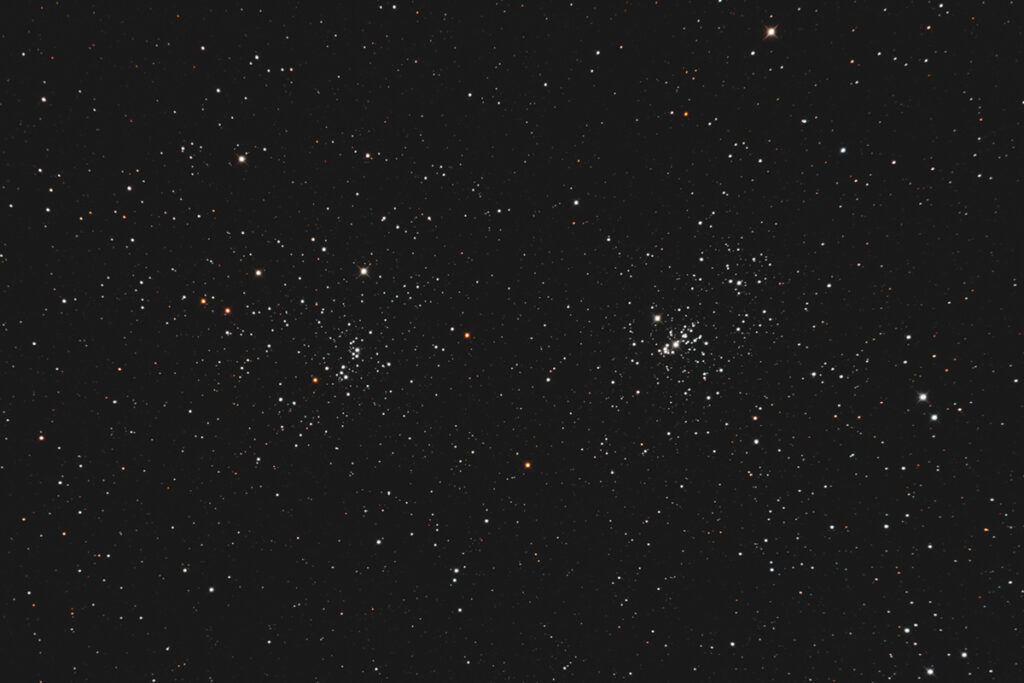
Telescope: Astro-Tech 8” f/8 Ritchey-Chretien, Orion Atlas EQ-G
Camera: Canon EOS Ra, Baader Mk III MPCC
Filter: Orion Imaging Skyglow Filter
Guide scope: Astro-Tech 60mm, Starlight Xpress Super Star, PHD2
Exposure: 48x60sec, ISO 800, saved as RAW
Darks: Internal (Long Exposure Noise Reduction On)
Flats: 32×1/20sec, Tee shirt flats taken at dusk
Average Light Pollution: Red zone, Bortle 8, poor transparency, haze
Lensed Sky Quality Meter: 18.2
Stacking: Mean with a 1-sigma clip.
White Balance: Nebulosity Automatic
Software: Backyard EOS, Deep Sky Stacker, Nebulosity, Photoshop
For a long time there was some debate as to whether the two clusters that make up the Double Cluster are actually associated with each other or just happened to appear in the same line of sight with one lying behind the other. It now appears that they are indeed lying next to each other, each about 7,000 light years away and about 100 light years apart. However, there is some evidence that the two clusters are of different ages, so while they may have formed separately from each other, they are now traveling companions.
The Double Cluster is currently low in the northeast late in the evening and is high overhead at dawn.
Recent Comments